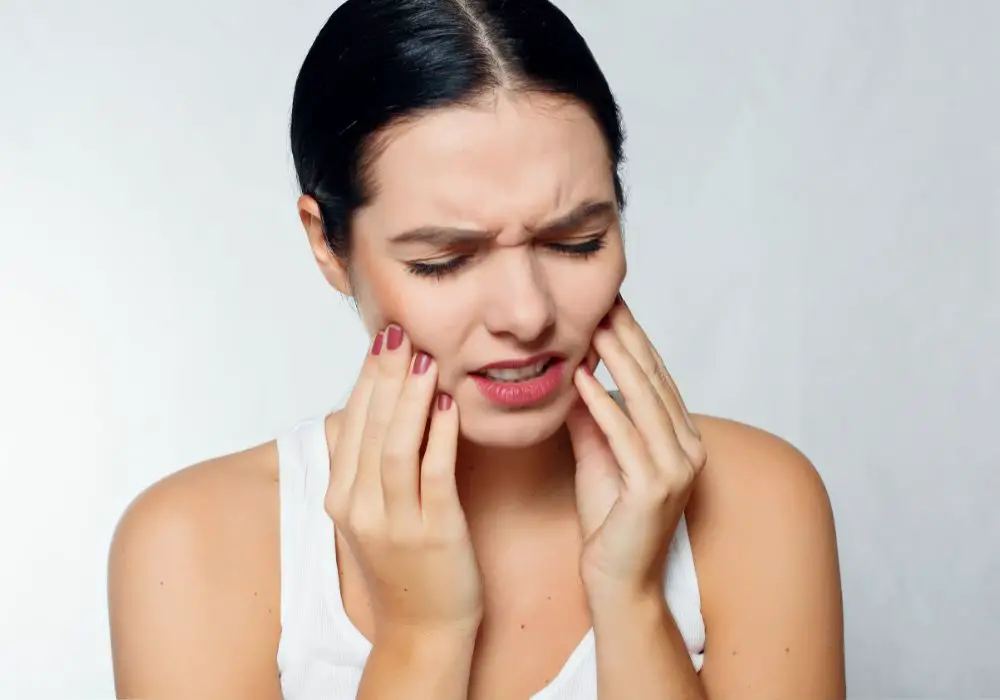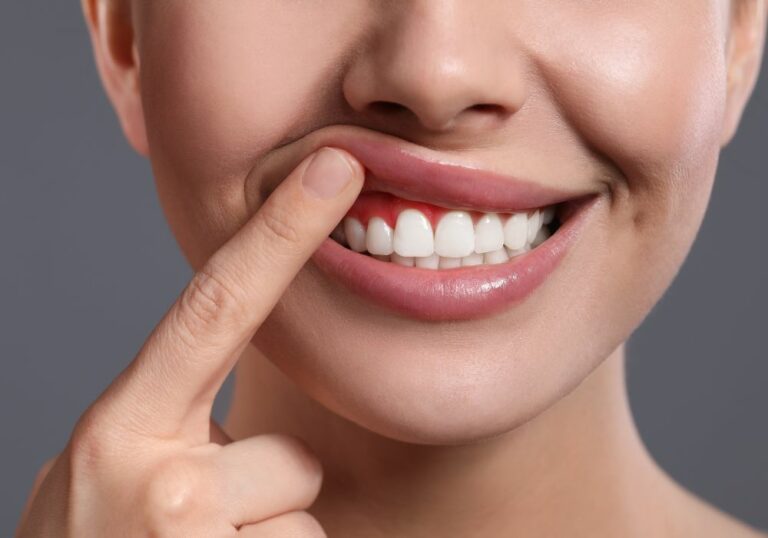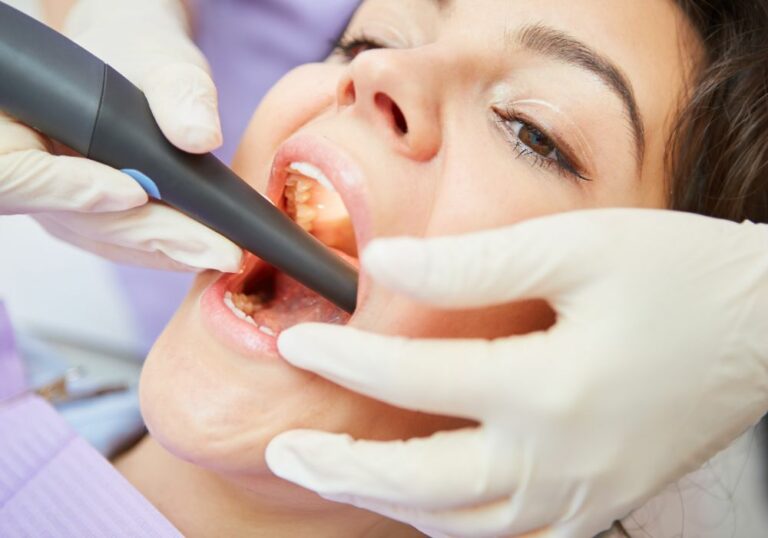It’s common to experience sensitive, painful, or aching teeth after eating sweets like Jolly Ranchers. But what exactly causes this uncomfortable aftermath from a favorite childhood candy? There are several reasons why hard candies and lollipops can hurt your teeth both in the short and long-term.
How Jolly Ranchers Damage Teeth

Jolly Ranchers have a hard, solid texture that takes quite a while to fully dissolve in the mouth compared to softer candies. This long dissolution time coupled with the candy’s stiff texture puts more force and pressure on your teeth as you suck on it. Over time, all of that compression can begin damaging the protective enamel layer of your teeth in various ways.
Cracked and Chipped Teeth
One of the most common dental issues from eating hard candies including Jolly Ranchers is cracked or chipped teeth. The constant pressure of your teeth pressing into the stiff candy over an extended period can cause tiny cracks and fractures in the enamel. This damage is often invisible to the naked eye, but exposes the sensitive inner layers of your teeth.
Dentists use special dyes and tools to detect these micro-fractures that cause discomfort when your teeth encounter heat, cold, air, or pressure. Harder foods like nuts and ice can also irritate existing tiny cracks and make teeth more painful when eating those items.
In some cases after sustaining extreme bite force on an extra-hard Jolly Rancher, teeth can develop larger visible cracks across the surface. Major fractures like this require dental repair to prevent infection of the inner tooth pulp.
Worn Down Enamel
Over many instances of eating Jolly Ranchers and other hard candies, your enamel can wear down from the constant compression force against the unyielding treats. This thinning of the enamel makes your teeth more susceptible to cavities and decay. Without sufficient enamel thickness, the more sensitive dentin layer underneath is less protected from irritants.
Advanced enamel wear can also lead to dental issues like temperature sensitivity, exposed tooth roots, and even tooth loss in severe cases. Early signs of worn enamel include slight tooth discoloration and increased translucency that shows more of the yellowish dentin shine through. Taking action to prevent further enamel erosion is important for tooth longevity.
Increased Risk of New Cavities
The combination of weakened and cracked enamel from frequent Jolly Rancher consumption creates the perfect environment for new cavities to form. Bacteria naturally present in your mouth feed on leftover sugar from the candies. In the process, they excrete acid as a byproduct.
This acid penetrates the microscopic cracks and eroded spots in damaged enamel and further eats away at tooth material. Over time, this loss of minerals creates holes in teeth known as cavities. They appear as yellow or brown spots on teeth initially. If allowed to grow, cavities can damage inner structures like the dentin and pulp, causing severe toothaches.
Aggravated Prior Dental Work
If you have existing dental work like fillings, crowns, or veneers, the sturdy texture of Jolly Ranchers can be even more problematic. These repaired areas of teeth often contain materials like porcelain, resin, or composite that make them more brittle and fracture-prone than healthy natural enamel.
The thin outer layers of dental work can easily crack from the pressure of chewing stiff candies. This exposes a gap between the old filling or crown and underlying tooth, allowing bacteria and acids to seep underneath and cause decay. Additionally, temperature changes quickly penetrate the crack and irritate the sensitive dentin and tooth pulp.
Difficulty Removing Debris
Jolly Ranchers contain lots of food dye in addition to sugar. As you suck on the candy, some of this sticky residual dye and sugar can become impacted between teeth or adhere in pits and grooves on the tooth surface.
These trapped particles provide fuel for the bacteria in your mouth to feast on and produce damaging acids. Without thoroughly brushing and flossing after eating the treats, the debris sticks around to wreak havoc on your enamel. Removing all traces of food and sugar from your teeth after eating helps minimize harm.
How Jolly Ranchers Exacerbate Tooth Decay

In addition to the physical wear and tear that Jolly Ranchers can inflict through compression and chewing, they also chemically weaken tooth enamel through their high sugar content. The combination of physical and chemical damage makes teeth more likely to become sensitive and painful after eating these candies.
Bacteria Metabolize Sugar into Acid
Jolly Ranchers contain a whopping 21 grams of sugar in a single piece. The bacteria naturally present in your mouth are unable to directly metabolize and digest this sugar. So instead, they ferment the sugar which produces acid as a byproduct.
This acid contains ions like hydrogen that chemically degrade and dissolve the minerals that make up your tooth enamel in a process called demineralization. The more sugar bacteria are exposed to, the more acid they produce.
Over time, frequent acid attacks from bacteria can destroy tooth enamel, forming holes and cavities. The less enamel you have protecting your teeth, the quicker heat, cold, pressure, and sugar penetrate to the sensitive inner layers of your teeth. This amplified sensitivity causes pain and discomfort.
Increased Acidity in the Mouth
Not only do Jolly Ranchers provide fuel for bacteria to manufacture enamel-eroding acid, but they also leave your mouth in a highly acidic state for 30-60 minutes after you eat them. The candy pieces contain citric and other acids that lower your mouth’s pH and promote a temporary acidic environment.
This acidic state immediately following candy consumption softens and weakens enamel, making it more prone to scarring and loss of minerals. When the acidity eventually neutralizes from saliva, your teeth are left more vulnerable to sensitivity and decay.
Frequent Sugar Exposure Causes Cumulative Harm
Occasional treats of Jolly Ranchers likely won’t cause long-term issues for your tooth enamel and health. But regular exposure to the candy’s harsh texture and copious sugar content multiple times per week or daily can incrementally damage teeth over months and years. This cumulative harm eventually makes itself known through tooth sensitivity, cracks, cavities, and pain.
Dentists generally recommend limiting even natural sugars from fruit or honey to no more than 2-3 times daily for dental health. Going over this amount raises your risk of permanent tooth damage and decay. The 21 grams of sugar in a single Jolly Rancher exceeds a typical serving of fruit sugar. Multiply that by frequent consumption, and you have a recipe for tooth trouble.
How Poor Oral Hygiene Worsens Jolly Rancher Effects
No matter if you eat the occasional Jolly Rancher or indulge more regularly, maintaining excellent oral hygiene habits can counteract some of the negative effects of the candies. However, if you slack on dental care, the repercussions of frequent hard candy consumption become much worse.
Insufficient Brushing and Flossing
When you don’t brush and floss thoroughly and routinely, plaque composed of bacteria, saliva, and food debris builds up on your teeth. This sticky film provides the ideal breeding ground for millions of acid-producing bacteria to thrive. Any new acid introduced from eating Jolly Ranchers has less resistance from weakened enamel underneath plaque.
Plaque also shelters the bacteria and keeps acid locked against the tooth surface rather than neutralized by saliva flow. This accelerates cavity development and enamel demineralization after eating candy.slots
Increased Cavity Vulnerability
Allowing plaque to remain on your teeth instead of disturbing it with brushing and flossing provides extended opportunity for bacterial acid and sugars to demineralize enamel. This makes you more prone to cavities in general.
When you add in the additional acidity spike and sugar fuel from frequently eating Jolly Ranchers without proper oral hygiene, your enamel quickly erodes. More bacteria penetrate the compromised enamel and infect the dentin layer, rapidly causing tooth decay.
Delayed Food Debris Removal
The sticky sugar residue and food dye particles left behind after eating Jolly Ranchers can stubbornly cling to tooth surfaces. Without promptly brushing and flossing after finishing the candy, these debris remain and linger against your enamel.
Bacteria immediately start feasting on any trapped particles, multiplying rapidly and producing escalating acid. This accelerates localized enamel weakening. Any food debris should be swiftly removed by brushing within 30 minutes after eating candy to avoid site-specific damage.
How to Prevent Jolly Rancher Tooth Pain

You don’t have to swear off Jolly Ranchers and other hard candies entirely if you take precautions before and after eating them to protect your teeth. Here are some tips:
Pick Softer Candies When Possible
Instead of extra-hard suckers and lollipops, choose slightly softer chewy candies like Starburst that compress your teeth less. Milk chocolate and other candies that dissolve faster also minimize prolonged enamel grinding. Just be aware these sweeter options still pose a cavity risk.
Limit Jolly Rancher Frequency
Enjoying hard candies like Jolly Ranchers after an occasional meal is unlikely to cause harm. But downing multiple pieces several times a week or daily provides a constant acid drip that can erode enamel over time. Be prudent about quantity and frequency.
Drink Water After Eating Them
Washing away the sticky candy residue and sugar from your mouth with water prevents bacteria from immediately breaking it down into damaging acid. Swish water around for 30 seconds after finishing candy.
Stimulate Saliva Flow
Chewing sugarless gum with xylitol boosts saliva flow in your mouth. The wash of saliva helps neutralize acids and adds minerals like calcium and phosphate back into weakened enamel in a process called remineralization.
Use Fluoride Rinses
Fluoride is excellent for strengthening enamel and protecting against sensitivity. Use a fluoride mouthwash daily and avoid eating or drinking for 30 minutes afterwards so the fluoride can work.
Don’t Brush Right After Consumption
While removing candy debris quickly is wise, refrain from brushing directly after eating Jolly Ranchers while your mouth remains highly acidic. This can scrape off the softened enamel. Wait 30-60 minutes until saliva neutralizes the environment.
Take Calcium Supplements
Boosting your calcium intake with supplements or calcium-rich foods like dairy provides the building blocks to rebuild minerals like hydroxyapatite into damaged enamel.
Use Sensitive Toothpaste
Switch to a desensitizing toothpaste containing compounds like stannous fluoride or potassium nitrate for several days after eating Jolly Ranchers to relieve sensitivity. Avoid whitening pastes as they can irritate.
Get Cracked Teeth Repaired
If a Jolly Rancher seriously cracks your tooth, get prompt dental treatment like bonding or crowns to prevent infection and more severe pain. Leaving cracks unaddressed leads to bigger problems.
Maintain Oral Hygiene Habits
Brushing thoroughly twice daily, flossing once daily, and getting professional cleanings prevents plaque buildup so acids and sugars from hard candies have less impact on your enamel. Don’t slack, as bacteria act fast to create decay.
Common Questions About Jolly Ranchers Causing Tooth Pain
Here are answers to some frequently asked questions about why Jolly Ranchers and other hard candies can leave your teeth feeling sensitive or in pain:
Why do my teeth hurt immediately after eating a Jolly Rancher?
The most likely reason is a microscopic crack in the enamel from the candy’s texture that exposes the inner dentin layer to air or pressure. Acidity from the candy can also irritate existing worn spots on enamel.
Do Jolly Ranchers damage teeth more than other hard candies?
Not necessarily. The hardness and long dissolution time is problematic for any hard candies like suckers, lollipops, mints, or butterscotch discs. Jolly Ranchers don’t differ much from similar candies in terms of risks.
Are chewy candies like Starburst safer for teeth than Jolly Ranchers?
Generally, yes. Softer, chewier sweets like Starburst don’t put as much constant compression on teeth that can cause cracks. But they still contain acids and sugars that degrade enamel over time, just usually at slower rates.
Can Jolly Ranchers really crack teeth in half?
It would be extremely rare, but it’s possible if someone bit down on an extra-hard piece with very forceful pressure in just the right direction. More likely are tiny hairline cracks only visible under magnification that cause sensitivity.
Should I avoid Jolly Ranchers if I have dental work?
It’s wise to be extra cautious when eating any hard or sticky candies if you have prior fillings, crowns, bridges, veneers or other dental restorations. The repaired area is likely weaker than a natural tooth and more prone to cracking or chipping.
Do sugar-free Jolly Ranchers still pose a risk?
Sugar-free varieties use artificial sweeteners that don’t feed bacteria in the same way. But they still have a hardened texture that can fracture teeth with prolonged chewing. Sugar-free kinds are likely a bit gentler, but not risk-free.
The Bottom Line
Hard candies like Jolly Ranchers that dissolve slowly require extended chewing and pressure that can crack teeth and damage enamel over time, especially when eaten frequently. Their high sugar content also strips away enamel and promotes cavity-causing acid from bacteria. Using proper dental care habits and limiting consumption minimizes the risks of sensitive, painful teeth after indulging in these sweet treats. Be mindful of both the short and long-term effects of eating hard candies like Jolly Ranchers on your tooth health and sensitivity.







